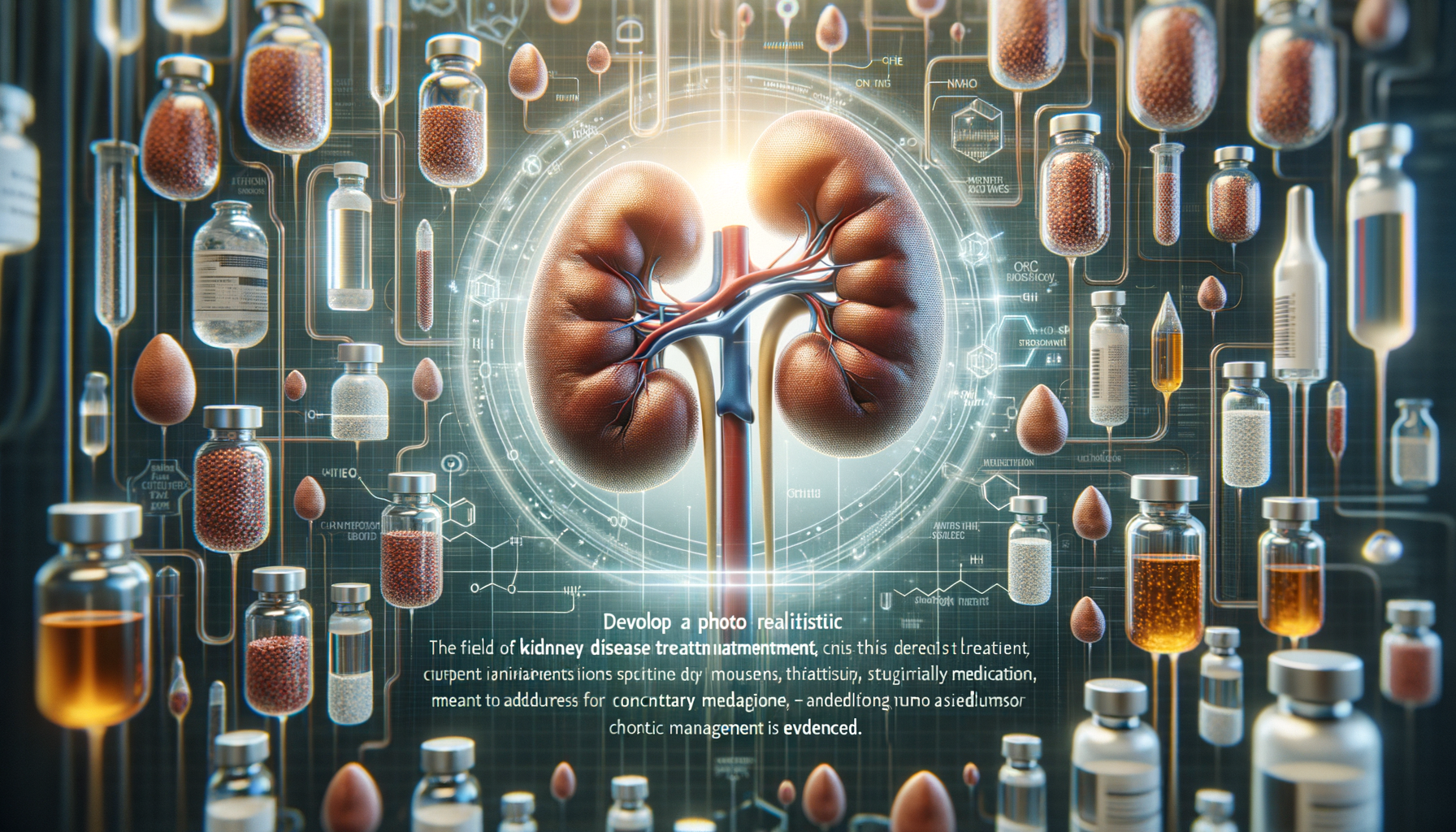Understanding Kidney Disease and Its Impact
Kidney disease is a significant health concern worldwide, affecting millions of individuals. The kidneys play a crucial role in filtering waste and excess fluids from the blood, maintaining a balance of electrolytes, and supporting overall health. When kidney function is compromised, it can lead to a range of health issues, including high blood pressure, anemia, and bone disease. Understanding the impact of kidney disease is essential for patients and healthcare providers alike.
Chronic kidney disease (CKD) is a progressive condition characterized by a gradual loss of kidney function over time. It is often silent in its early stages, making early detection and management challenging. Risk factors for CKD include diabetes, hypertension, and a family history of kidney disease. As the disease progresses, symptoms such as fatigue, swelling, and changes in urine output may become more apparent.
The importance of early diagnosis and intervention cannot be overstated. Regular screenings for those at risk, along with lifestyle modifications, can help slow the progression of CKD. Treatment plans often include managing underlying conditions, dietary adjustments, and medications. The goal is to preserve kidney function and improve quality of life for those affected.
Current Treatments for Kidney Disease
Treatment for kidney disease varies depending on the stage and underlying cause. Early stages of CKD may be managed with lifestyle changes and medications. These measures aim to control blood pressure, blood sugar levels, and cholesterol, thereby reducing the strain on the kidneys.
For those with more advanced kidney disease, dialysis and kidney transplantation are common treatment options. Dialysis is a procedure that artificially removes waste and excess fluids from the blood, a function normally performed by healthy kidneys. There are two main types of dialysis: hemodialysis and peritoneal dialysis, each with its own set of benefits and challenges.
Kidney transplantation is considered a highly effective treatment for end-stage renal disease. It involves replacing a diseased kidney with a healthy one from a donor. While transplantation can significantly improve quality of life and longevity, it also requires lifelong immunosuppressive medication to prevent rejection of the new organ.
- Medications to manage symptoms and complications
- Dietary changes to reduce the workload on kidneys
- Regular monitoring and follow-up care
Innovations in Kidney Disease Treatment: New Drug Developments
Recent advancements in medical research have led to the development of new drugs aimed at treating kidney disease more effectively. These drugs focus on slowing the progression of CKD, managing symptoms, and improving patient outcomes.
One promising area of development is the use of SGLT2 inhibitors, originally designed for diabetes management, which have shown potential in protecting kidney function. These drugs work by reducing blood sugar levels and have been found to slow the progression of kidney disease in patients with diabetes-related kidney issues.
Another innovative approach involves the use of anti-inflammatory medications that target specific pathways involved in kidney damage. By reducing inflammation, these drugs aim to preserve kidney function and delay the need for dialysis or transplantation.
Ongoing clinical trials continue to explore the efficacy and safety of these new treatments, offering hope for improved management of kidney disease in the future.
Managing Chronic Kidney Disease: Strategies and Support
Living with chronic kidney disease requires a comprehensive management plan that addresses both physical and emotional needs. Patients are encouraged to work closely with their healthcare team to develop a personalized care plan.
Dietary management plays a critical role in CKD care. Patients are often advised to limit sodium, potassium, and phosphorus intake to reduce the burden on the kidneys. A dietitian can provide guidance on meal planning and nutritional needs.
Regular exercise, stress management, and smoking cessation are also important components of a CKD management plan. These lifestyle changes can help improve overall health and slow disease progression.
- Engaging in regular physical activity
- Maintaining a healthy weight
- Seeking support from healthcare professionals and support groups
Emotional and psychological support is equally important. Coping with a chronic illness can be challenging, and patients may benefit from counseling or support groups to share experiences and strategies for managing the disease.
Conclusion: Navigating the Path of Kidney Health
Kidney disease presents significant challenges, but with advancements in treatment and a focus on comprehensive management, patients can maintain a good quality of life. Early diagnosis, lifestyle modifications, and new drug developments offer hope for those affected by this condition.
As research continues to evolve, it is essential for patients and healthcare providers to stay informed about the latest treatment options and management strategies. By working together, they can navigate the complexities of kidney disease and strive for better health outcomes.
Whether through adopting healthier habits, exploring new medications, or seeking support, individuals with kidney disease have a range of options to consider on their journey to better kidney health.




Leave a Reply